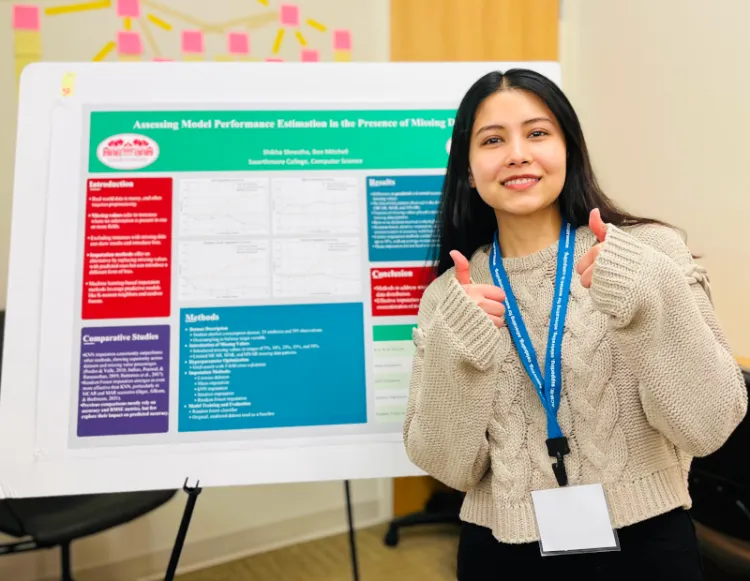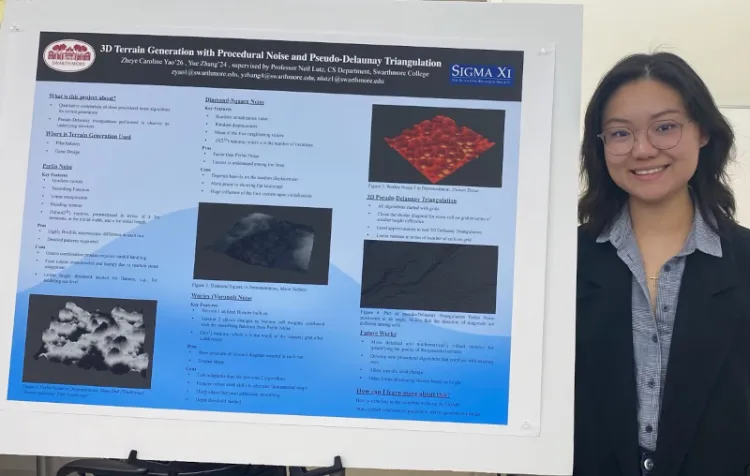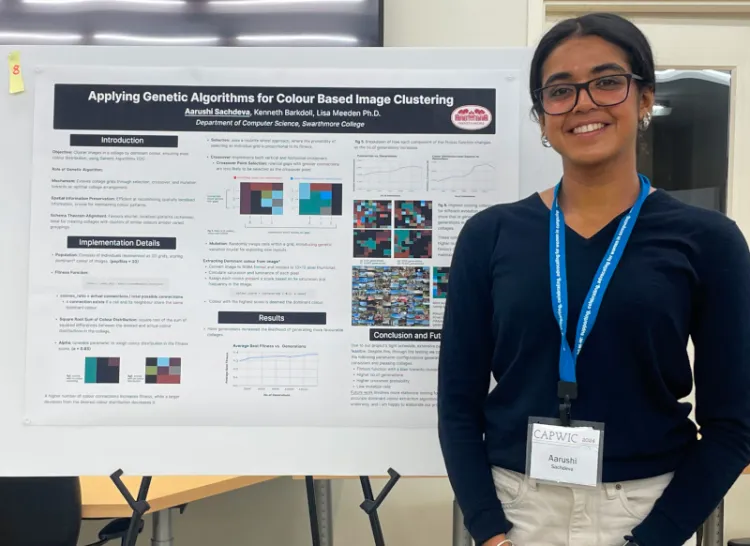Computer Science students present at CAPWIC Conference
Shikha Shesthra '24, Caroline Yao '24, and Aarushi Sachdeva '24 presented their research and class projects at the Capital Region Women in Computer Science Conference (CAPWIC) in Charlottesville, VA, April 2024.
Shikha Shrestha presented a poster on Assessing Model Performance Estimation in the Presence of Missing Data. It highlighted the research she had done with Professor Ben Mitchell over the summer.

Their study investigated the impact of missing values on model performance across various imputation methods. The study focused on the differences in the performance estimation of random forest classifiers when using common imputation methods to replace missing values. Their findings revealed a pronounced tendency for model performance to be overestimated when missing values were present in both the training and testing sets, with the extent of overestimation varying among the imputation methods. These results underscored the importance of exercising caution when working with data featuring missing values in a machine-learning context, a critical insight they brought to light through their research collaboration.
Caroline Yao presented 3D Terrain Generation with Procedural Noise and Pseudo-Delaunay Triangulation.This project was collaborated with Yue Zhang and under the supervision of Professor Neil Lutz.

The project illustrated three different procedural noise algorithms (Perlin, Diamond-Square, and Worley Noise) and demonstrated their respective sample output terrains. The highlight of the project includes innovative modification to the Worley Noise and pseudo-Delaunay triangulation procedure adapted from regular 2D Delaunay triangulation, which played a vital role in the final formation of the faces of the terrain, as well as a complete runtime analysis along with advantages and disadvantages of each of the three algorithms.
Aarushi Sachdeva presented a poster on Applying Genetic Algorithms for Colour Based Image Clustering, a project she worked on in her AI class with lab partner Ken Barkdoll, under the guidance of Professor Lisa Meeden.

The project explores an innovative method for creating visually appealing image collages through genetic algorithms, focusing on clustering images by color. Their algorithm utilizes a novel crossover function that operates on both the horizontal and vertical planes of a collage 2D grid and a tailored fitness function that rewards localized color grouping and penalizes deviations from the original dataset's color distribution. Their approach demonstrates genetic algorithms' efficacy in handling spatially localized information and its potential for creative organization of visual content.



